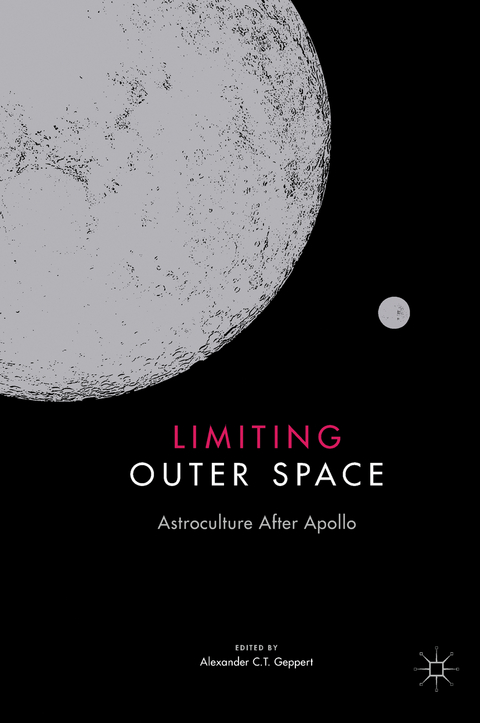
Limiting Outer Space
Palgrave Macmillan (Verlag)
978-1-137-36915-4 (ISBN)
Alexander C.T. Geppert is Associate Professor of History and European Studies and Global Network Associate Professor at New York University Shanghai as well as NYU’s Center for European and Mediterranean Studies in New York City. From 2010 to 2016 he directed the Emmy Noether research group ‘The Future in the Stars: European Astroculture and Extraterrestrial Life in the Twentieth Century’ at Freie Universität Berlin.
Introduction.- 1 Alexander C.T. Geppert; The Post-Apollo Paradox: Envisioning Limits During the Planetized 1970s.- Part I: Navigating the 1970s.- 2 Martin Collins; The 1970s: Spaceflight and Historically Interpreting the In-between Decade.- 3 Roger D. Launius; Responding to Apollo: America’s Divergent Reactions to the Moon Landings.- 4 Doug Millard; A Grounding in Space: Were the 1970s a Period of Transition in Britain’s Exploration of Outer Space?.- Part II: Reconfiguring Outer Space.- 5 Robert Poole; The Myth of Progress: 2001: A Space Odyssey.- 6 Florian Kläger; The Earthward Gaze and Self-reflexivity in Anglophone Novels of the 1970s.- 7 Thore Bjørnvig; Building Outer Space: LEGO and the Conquest of the Beyond in the 1970s.- 8 Luca Follis;The Province and Heritage of Humankind: Space Law’s Imaginary of Outer Space, 1967–1979.- Part III: Grounding Utopias.- 9 Andrew Jenks; Transnational Utopias, Space Exploration and the Association of Space Explorers, 1972–1985.- 10 Regina Peldszus; Architectural Experiments in Space: Orbital Stations, Simulators and Speculative Design, 1968–1982.- 11 Tilmann Siebeneichner; Spacelab: Peace, Progress and European Politics in Outer Space, 1973–1985.- 12 Peter J. Westwick; From the Club of Rome to Star Wars: The Era of Limits, Space Colonization and the Origins of SDI.- Epilogue.- 13 David A. Kirby; Final Frontiers? Envisioning Utopia in the Era of Limits.
| Erscheinungsdatum | 07.05.2018 |
|---|---|
| Reihe/Serie | Palgrave Studies in the History of Science and Technology |
| Zusatzinfo | XXIV, 367 p. |
| Verlagsort | Basingstoke |
| Sprache | englisch |
| Maße | 155 x 235 mm |
| Themenwelt | Schulbuch / Wörterbuch ► Lexikon / Chroniken |
| Geschichte ► Teilgebiete der Geschichte ► Technikgeschichte | |
| Naturwissenschaften ► Physik / Astronomie ► Astronomie / Astrophysik | |
| Sozialwissenschaften | |
| ISBN-10 | 1-137-36915-9 / 1137369159 |
| ISBN-13 | 978-1-137-36915-4 / 9781137369154 |
| Zustand | Neuware |
| Haben Sie eine Frage zum Produkt? |
aus dem Bereich


